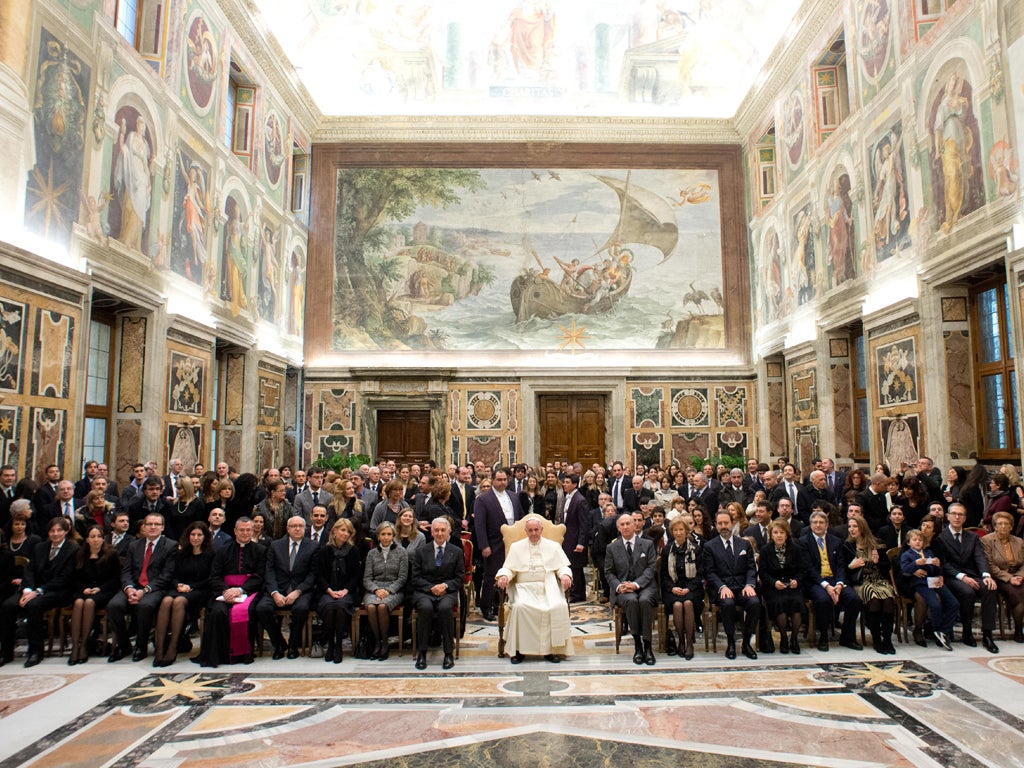What a management consultant could teach the Vatican
In Rome, the official story is often quite different to the real one

What happened when the management consultant walked into the Vatican? It sounds like the beginning of a joke shared by priests.
The appointment of the two consultancies comes against the backdrop of a series of ongoing crises in the Church. The official line on why the consultants have been brought in is to help address problems with communications and administrative processes. Both the consultants are likely to plunder their past work and offer solutions which are relatively standard with a few tweaks around the edge.
To improve communication, McKinsey will probably advise the church to stop doing bad things in the first place. This can be achieved by implementing early warning systems such as clear whistle-blowing procedures which will flag up small problems before they become big ones. If a big scandal does occur, then the Holy See will probably be advised to use modern crisis communication methods such as quickly owning up to the problem, rapidly helicoptering the Pope in to show the Church is doing something, and putting in place procedures rapidly to resolve the issue. They might even be told to start tracking their reputation on social media sites.
Resolving the administrative issues may be a little more difficult. It is likely KPMG will probably recommend more transparent modern accounting methods. This might be coupled with audits and perhaps even risk-management systems which will flag up any potential improprieties. They will also inevitably try to sell them some kind of vast information technology system to keep track of all the Church’s internal administrative processes.
As with everything in the Vatican, the official story is often quite different from the real story. Typically, organisations don’t bring in consultants because they don’t know what to do. Leaders like the Pope usually have a pretty good sense of what is wrong and what needs to be done. Consultants are more useful because most organisations need an external voice to tell them what they already know.
When it comes from someone outside the organisation, particularly in an impressive PowerPoint show with the McKinsey logo on it, then leaders are often far more willing to take it seriously. The very same message is usually disregarded if it is delivered by someone in the organisation.
This suggests the Pope is probably bringing in the consultants as back-up. They will help him to deliver unpopular messages within the Church and ensure people listen to them. It comes with the added benefit that it will help to show the outside world that the Church is serious about doing something about its failings. This will demonstrate to the flock that the reforms are based on best practice and are not just the Vatican up to its old tricks again.
But appointing consultants, no matter how smart and how well-paid, comes with some important draw-backs. Consultants often write lengthy and expensive reports which are quickly binned after they have been presented.
Organisations can become so dependent on consultants for advice that they no longer rely on their own talent to solve problems. This could be fatal for an organisation like the Church as it would mean disregarding a deep and rich history of managing what was essentially the world’s first multinational.
Professor Spicer is Professor of Organisational Behaviour at the Cass Business School, City University London

Join our commenting forum
Join thought-provoking conversations, follow other Independent readers and see their replies